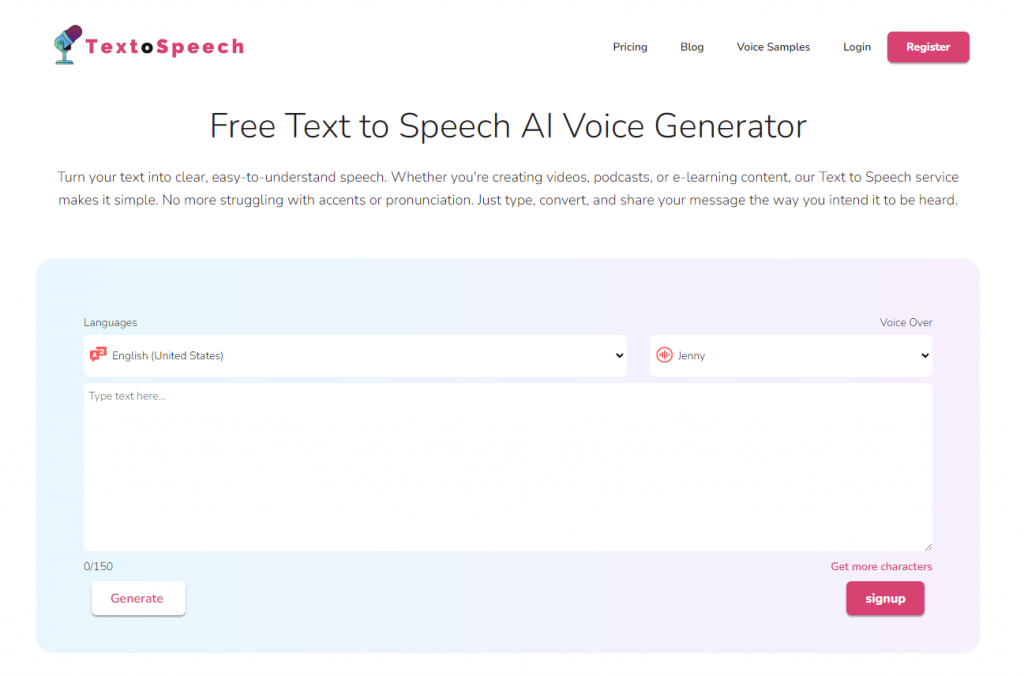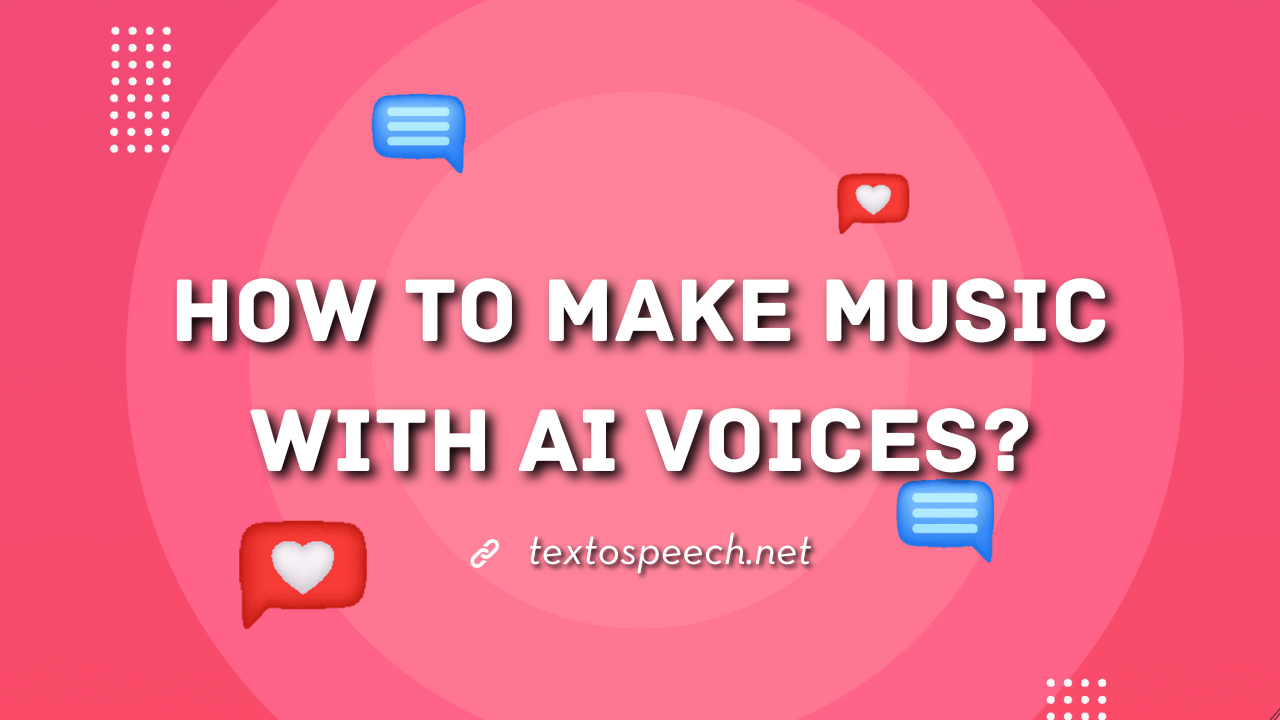AI voices are digital soundtracks created by algorithms capable of mimicking human tones and inflections to produce music or spoken audio. They’re reshaping music production, offering artists a new palette of vocal expressions.
Sounds a little hard to understand? No worries, we will explain it in the best and easiest way.
In this guide, we’ll dive into how you can control AI voices to the Best Tools To Make Music With AI Voices. Let’s explore how to blend these innovative sounds into your music creations.
What Is AI Voices?
AI voices are computer-generated voices that sound like real people. These voices are created using artificial intelligence technology, which makes them sound natural and human-like.
They can be used for various purposes, such as reading text aloud, providing voiceovers for videos, or even answering questions in customer service chatbots.
AI voices are versatile and can mimic different accents and emotions, making them useful in various applications.
Why AI Voices for Music?
AI voices are used in music for various reasons. One key benefit is their ability to generate vocals quickly and efficiently. With AI, you can create singing voices without needing a human singer, saving time and money in music production.
Additionally, AI voices offer versatility. They can mimic different vocal styles, tones, and languages, allowing musicians to experiment with various vocal elements in their songs.
AI voices can provide consistency in music production. They can deliver the same performance every time, ensuring that the vocals remain consistent throughout a song, which can be challenging to achieve with human singers.
How to Use AI Voices in Music Production?
There are a few different ways to use AI voices in music production.
- Use AI voices to create the main vocals in your song: This can be a great way to add a unique and interesting sound to your music.
- Use AI voices to create backing vocals: This can help to thicken the sound of your music and add depth and texture.
- Use AI voices to create sound effects or atmosphere: This can be a great way to add interest and excitement to your music.
Benefits of Using AI Voices For Music
Using AI voices in music production has several benefits that can enhance your creative process and the quality of your music.
- Efficiency: AI voices can generate vocals quickly and efficiently, saving you time and effort in the recording studio.
- Versatility: AI voices can mimic various vocal styles, tones, and languages, allowing you to experiment with different vocal elements in your songs.
- Consistency: AI voices deliver consistent performances, ensuring that your vocals remain uniform throughout your music, eliminating the need for retakes.
- Cost-Effective: AI voices eliminate the costs of hiring human singers, making music production more budget-friendly.
- Customization: You can customize AI voices to match your musical vision, adjusting pitch, emotion, and other vocal characteristics.
- Accessibility: AI voices allow musicians with limited access to vocalists to create professional-quality music.
Adding AI voices to your music-making tools can make your creative work smoother and help you get the vocals you want in your songs. Plus, it’s budget-friendly and efficient.
4 Tips for Making Music With AI Voices
1. Choose the Right AI Tool
Select an AI music generation tool that suits your needs and preferences. Some tools focus on specific music styles, while others offer many options. Research and test different platforms to find the one that aligns with your musical vision.
2. Define Your Song’s Style
Determine the style, genre, and mood you want for your song. AI tools often allow you to input these parameters to guide music generation. A clear idea of your song’s style will help the AI generate music that fits your vision.
3. Experiment and Iterate
Feel free to experiment with different inputs and settings. AI music generators are versatile, and you can create a variety of compositions by tweaking parameters such as tempo, instrumentation, and complexity. Try different combinations to discover unique musical possibilities.
4. Blend AI with Human Creativity
AI can assist in music creation, but it’s essential to infuse your creativity into the process. Combine AI-generated elements with your musical ideas, lyrics, and personal touch to craft a unique song.
5. Lyrics and Vocals
If your song includes lyrics and vocals, you may need to write lyrics separately and record your voice. AI tools can assist with lyric generation, but human emotions and expression are crucial in delivering a compelling vocal performance.
Why Use TextoSpeech to Create Quality AI Music?

TextoSpeech is promoted as a user-friendly platform for converting text to speech. It claims to offer natural human-like voiceovers in over 50 languages, with 200+ voices, accents, and emotions.
This tool is web-based, needs no installation, and allows for voiceover generation within a minute.
It also provides options to control speech speed, pitch, and emphasis on specific words, making it a versatile tool for creating audio content, although it doesn’t mention music creation.
- Voice Customization: Customize the tone, pace, and volume to match the mood of the content.
- Background Music: Add background music to voiceovers to enhance the auditory experience.
- Script Saving: Save scripts for future edits and voiceover generation.
- Voice Merging: Adds multiple generated audios in a single audio, saving time and effort.
- Preview Option: Preview the voiceover before finalizing it to ensure it meets the requirements.
- MP3 Format: Export voiceovers in MP3 formats for easy integration. Which is the best audio format for any type of music player.
- Secure Platform: Ensures data privacy and security during text-to-voice conversion.
- Accessibility: A mobile-responsive platform accessible from various devices.
These features make TextoSpeech more appealing for diverse projects, not just music creation.
Legal and Creative Considerations
When making music with AI voices, there are some important things to consider, both in terms of ethics and creativity.
- Attribution: It’s essential to give credit to the AI tool or technology you use to create music. Just like you would credit a human collaborator, acknowledge the AI’s contribution.
- Copyright: Be aware of copyright laws. Ensure that the AI-generated music doesn’t infringe on someone else’s work. Some AI tools may use existing music as a basis, so it’s crucial to understand the rights involved.
- Transparency: If you use AI to generate music for commercial purposes, be transparent with your audience. Let them know that AI was involved in the creative process.
- Balance AI and Human Creativity: While AI can assist in music creation, don’t rely on it entirely. Infuse your unique creativity, emotions, and personal touch into the music to make it more authentic.
- Experimentation: Use AI as a tool for experimentation. Try different AI-generated elements, styles, and genres to discover new musical ideas and possibilities.
- Collaboration: Consider collaborating with other musicians or producers to combine human creativity with AI-generated music. Collaborations can lead to exciting and innovative compositions.
- Embrace the New: Be open to the possibilities that AI brings to music creation. It can help you explore new avenues and push creative boundaries.
Limitations of Using AI Voices in Music Production
There are also a few limitations to using AI voices in music production.
- AI voices can sound artificial: This is especially true if you need to be more careful with the settings.
- AI voices can be limited in range and expression: They may not be able to replicate the full range of human vocal capabilities.
- AI voices can be expensive: This is especially true if you use a high-quality AI voice generator.
Common Questions Asked Related to Music With AI Voices
1. What is required to start making music with AI voices?
Access to an AI voice generation platform and a basic understanding of music production are needed to begin.
2. Can AI voices create different singing styles?
Yes, many AI voice platforms can simulate various singing styles and vocal nuances.
3. Do AI voices sound realistic in music?
Advanced AI can produce quite realistic voices, but they may still lack the emotional depth of human singers.
4. What genres work best with AI voices?
AI voices are versatile but typically excel in electronic and pop genres.
Conclusion And Summary
We just went over how to create music with AI voices. It’s helpful because you can make songs even if you’re not a singer. AI voices can hit the notes for you.
Now that you know how it’s done, why not make your tune? It’s fun, and with AI, you can get creative. So go ahead, play around with AI voices, and make some music!

